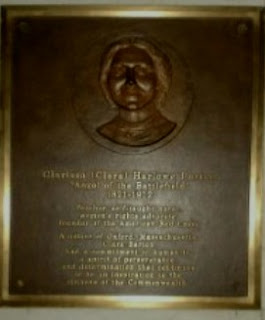Historical Profile: George Frisbie Hoar
 |
| George Frisbie Hoar statue - Boston, MA. |
Boston,
MA. – George
Frisbie Hoar (1826 – 1904) was a well-known American political figure during
the 19th century. During his time in elected office, Hoar was on the
forefront of several contemporary social issues.
Hoar
was born in Concord, Massachusetts. In 1846, he graduated from Harvard
University and in 1849 he graduated from Harvard Law School. After completing
law school, Hoar went on to run for elected office. Eventually, he would serve
in the Massachusetts House of Representatives and the Massachusetts Senate.
Later, he was elected to the U.S. House of Representatives for four terms and
the U.S. Senate from 1877 – 1904.
In
1865, Hoar was one of the co-founders of the Worcester County Free Institute of
Industrial Science – which eventually became the Worcester Polytechnic
Institute. In addition to writing the
Presidential Succession Act of 1886, Hoar was an advocate for the inclusion of
African Americans and Native Americans. In 1882, he voted in opposition to the
Chinese Exclusion Act. He was also opposed to the annexation of the Hawaiian
Islands. In 1887, he co-founded the American Irish Historical Society.
There
is a statue of George Frisbie Hoar in the State Library at the Massachusetts
State House in Boston. There is an inscription on the bottom of the statue that
reads: "George Frisbie Hoar: 1826 – 1904. Scholar, jurist, statesman. Pure in life.
Incorruptible in politics. Champion of Freedom. Friend of Humanity."


Comments
Post a Comment